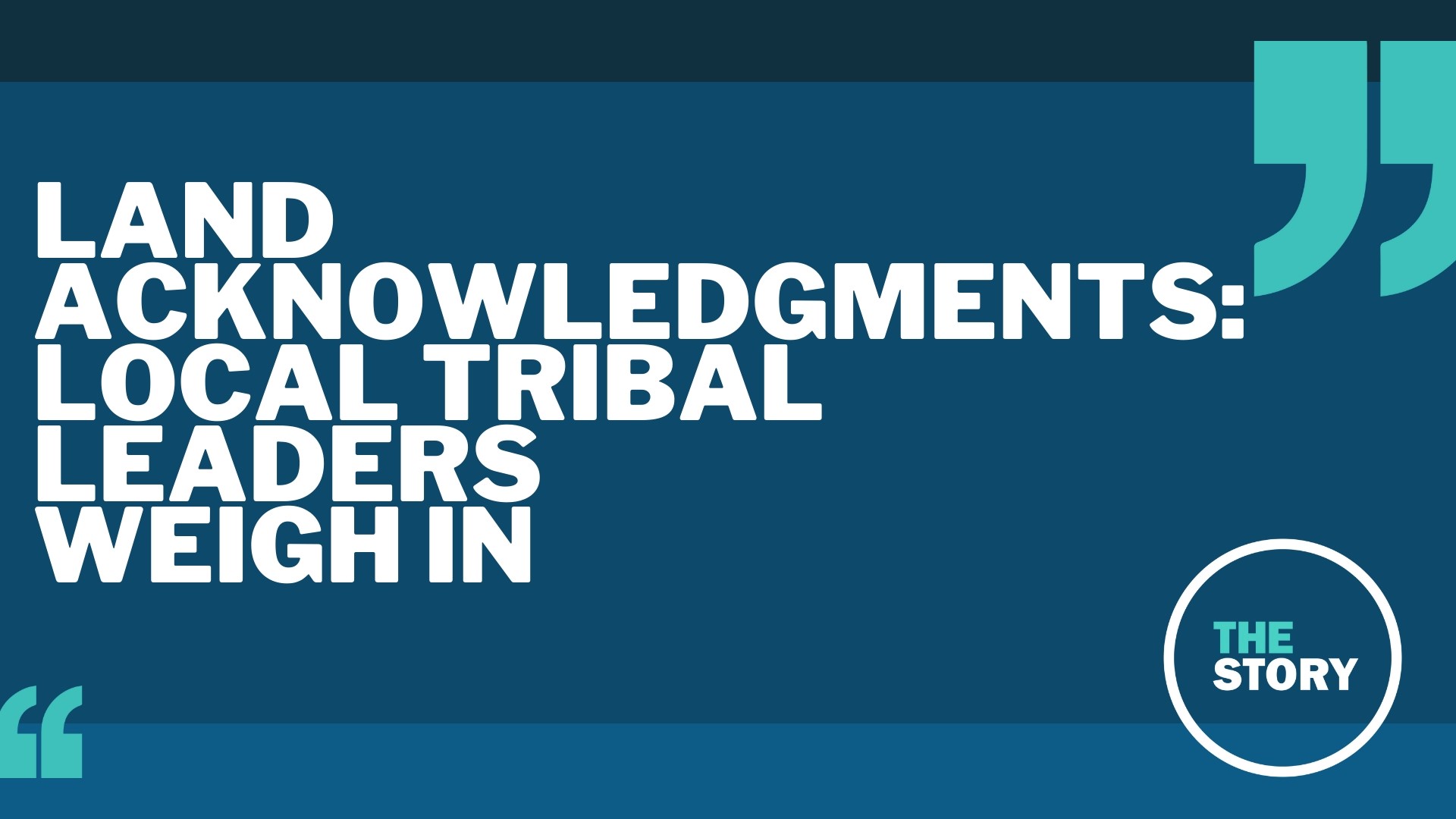OREGON, USA — The City Club of Portland hosted this year's primary debates between leading Democratic and Republican candidates for governor, as well as other important events like Portland Mayor Ted Wheeler's state of the city speech.
Before those and other events, a speaker reads a statement something like this: "As we begin this program we want to acknowledge the land we are on is Native and was stolen from people who lived here for thousands of years. Together we recognize their unbreakable connection to this land and we honor their resilience and the hope of their ancestors and the hope of future generations."
They are one of many organizations in Oregon and nationwide that begin events with a land acknowledgment.
Land acknowledgements like that started becoming more common about three years ago in Oregon. Native American leaders have mixed feelings.
"We don't want anyone to do a feel-good, empty gesture. We don't want people just to signal ethical conformity," said Bobbie Conner. "We want people to say something that means something to them."
Conner is a member of the Confederated Tribes of Umatilla and the director of the Tamástslikt Cultural Institute. She explained tribes have long used land acknowledgments as a message of thanks.
"Whenever we are in the long house or when we're in a public gathering where our people are speaking or leading, we acknowledge that this is the homeland that the creator gave us," she explained. "And we acknowledge that this land has sustained us, and with gratefulness and humbleness, appreciate what has been our endowment."
In the last few years she's had dozens of groups, including nonprofits, corporations, institutions, clubs and others, send her their statements to see if they are proper or offensive.
The history of land acknowledgments for non-Natives seems to date to 2015 in Canada, after the Truth and Reconciliation Commission there issued a scathing report on the Indian Residential School system, and Justin Trudeau was elected Prime Minister, with promises to reconcile Canada with indigenous people.
Now, many governments, organizations and nonprofits across Canada and the United States use these acknowledgments. Portland Parks Foundation, Multnomah County, the Port of Portland, the City of Vancouver all have land acknowledgments on their websites; the list goes on and on.
All those statements have caught the attention of tribal leaders. While some hear empty words, others appreciate the recognition.
"It's very pleasing because Native Americans have been invisible from our history books, from the place that we live," said Cheryle Kennedy, chairwoman of the Confederated Tribes of Grand Ronde.
Do the words ring hollow, given that it's exceedingly unlikely the government would cede the land back to tribes? Sometimes, Kennedy said.
"Recognizing that to give it all back is impractical, but I might say, you know, tribal governments have a good way of handling things. We could do that. We could operate as a government as we have in our area here at Grand Ronde."
Some organizations are taking concrete steps to address injustices to tribes. Metro, the Portland area's regional government entity, says tribes are being consulted over the cleanup of the Portland superfund site called Willamette Cove, and the Grand Ronde were consulted during the creation of the new Chehalem Ridge Nature Park south of Hillsboro.
Metro is moving away from routinely starting meetings with land acknowledgments, and will instead focus on doing the work to connect with tribes and local Native Americans.
"Maybe a few years ago, it was something that I think started with staff members beginning meetings with them and the purpose was to take some time to recognize the people from what we now call Portland," said Cory Eldridge, a spokesperson for Metro.
The Portland Art Museum has embraced land acknowledgments, but museum director Brian Ferriso said the commitment runs deeper than words.
"We have one of the great collections of Northwest Native American art in the country. At the same time, we feel that part of our responsibility is to have a program, staff and board that reflects the living nature of Native American art and culture," he explained. "It's a vibrant culture, it's an exciting culture. The artistic creativity coming out of the Native American community now is just as exciting now as it was a hundred years ago."
For any group doing a land acknowledgment, Bobbie Conner offered a challenge: "If you are compelled to say these good words, my question is what are you willing to do about it? What will you do to live up to the words that you're going to say on behalf of your organization. Are you going to vote for people who uphold treaty rights? Are you going to vote for people who understand the federal trust relationship? Are you going to vote for officials who have good working relationships with tribal and other peoples? Are you gonna vote for things that help us all take better care of the planet?"

